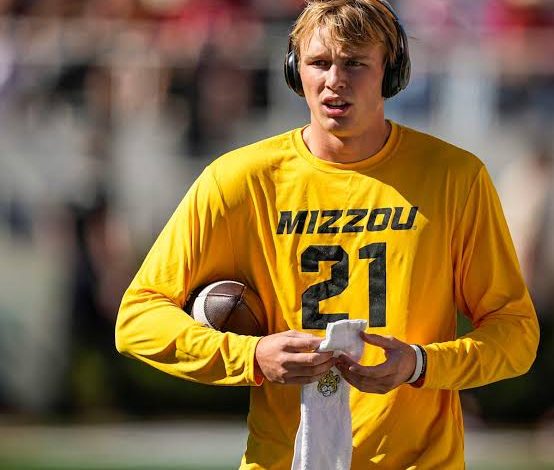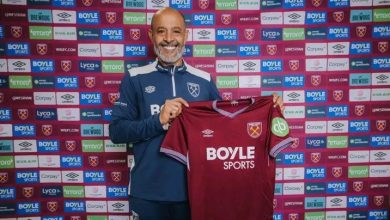: Missouri’s Sam Horn Exposes $7.7M Tampering Offer from Tennessee Refuses to Abandon Tigers……….

: Missouri’s Sam Horn Exposes $7.7M Tampering Offer from Tennessee Refuses to Abandon Tigers……….
Columbia, MO — The battle for college football supremacy took a sharp, controversial turn this week as Missouri quarterback Sam Horn reportedly turned down a shocking $7.7 million NIL offer from Tennessee—an aggressive move widely viewed as tampering under NCAA guidelines.
The offer, which dwarfed Horn’s current NIL valuation and included immediate stardom, endorsement deals, and elite training facilities, was allegedly made through backchannel communication—raising alarms within both Missouri’s athletic department and broader SEC leadership. If confirmed, this could become one of the most blatant tampering cases in the NIL era.
Yet in the face of immense pressure and unprecedented financial temptation, Sam Horn said no.
“No amount of money is worth walking away from what I’ve built here,” Horn reportedly told a senior Missouri staffer. “This is my team. This is my legacy.”
Horn, 20, has emerged as the face of a surging Missouri program, coming off a season that saw the Tigers regain national relevance. His refusal to enter the transfer portal despite a nearly eight-figure offer speaks volumes not only about his character but also about the dark underbelly of modern college recruiting.
According to internal sources, Tennessee representatives made the offer via an NIL collective, bypassing direct communication protocols—an action that, if verified, would constitute a clear violation of NCAA anti-tampering rules.
Missouri officials are said to be “fully aware” of the incident and preparing to escalate the matter to the NCAA and SEC offices. Legal teams are reportedly reviewing communication logs and digital evidence that could expose those involved.
“This wasn’t just an attempt to recruit,” said one SEC insider. “This was a coordinated effort to poach a franchise player using deep-pocketed donors and shady backchannels.”
Tennessee, when pressed for comment, issued a vague denial: “We comply with NCAA rules and have not engaged in any improper communication with student-athletes from other institutions.”
But industry insiders aren’t convinced.
“This kind of thing is happening all over college football,” said a former compliance director for a Power Five program. “The difference here is that a player finally said no, and he’s willing to speak out.”
Horn’s stance is being hailed as a turning point. In an era where money drives headlines and NIL collectives wield unchecked influence, one of the SEC’s brightest young stars has drawn a line in the sand.
The $7.7 million offer, which would have been among the highest publicly known NIL deals in college football, represents the dangerous extremes to which programs are willing to go. And yet, Horn chose loyalty over cash.
Missouri fans erupted in praise across social media, calling Horn “the pride of Columbia” and “a rare breed in this new era.” Several former players and coaches, including some NFL alumni, have publicly applauded his decision.
Now, the NCAA faces a critical question: Will it take action against tampering, or continue to let NIL loopholes erode the integrity of college athletics?
For Missouri, Horn’s commitment is more than a feel-good story—it’s a declaration that the Tigers are here to contend, and that their leaders won’t be bought.
Developing story: NCAA and SEC responses expected.





